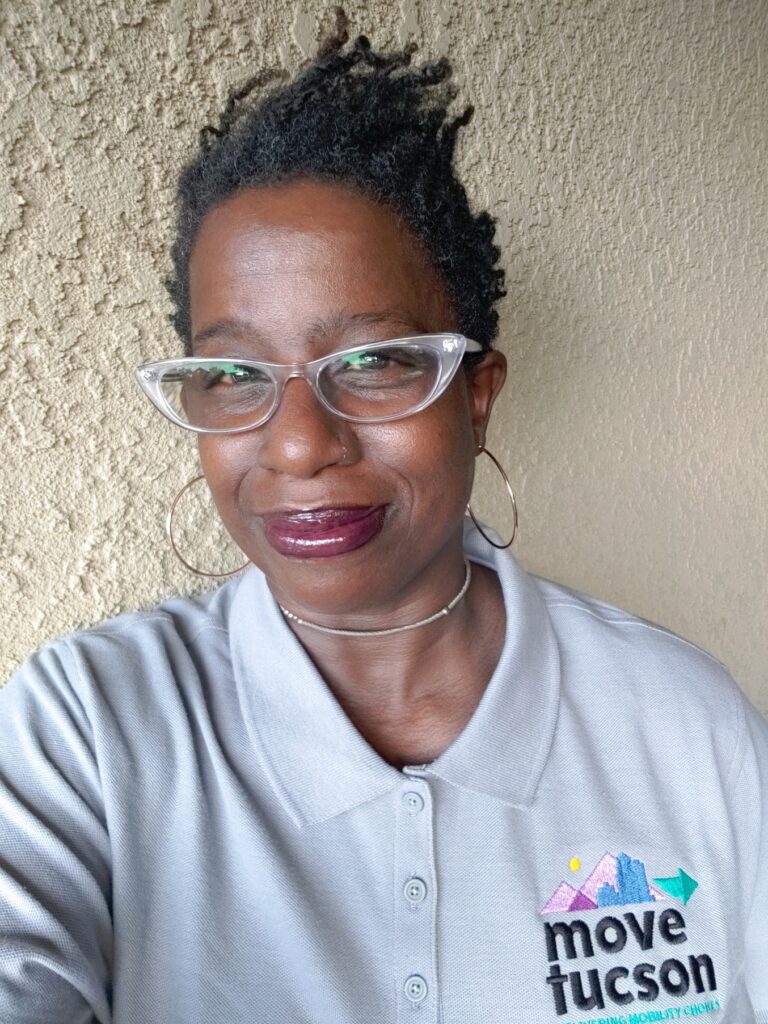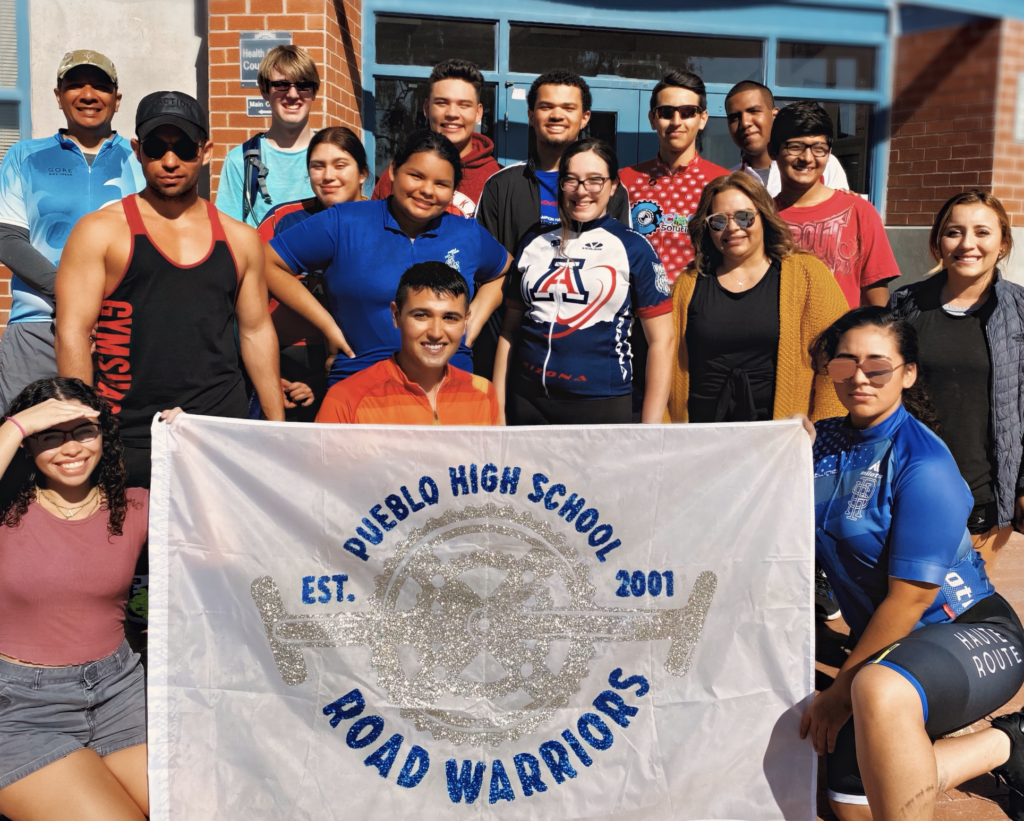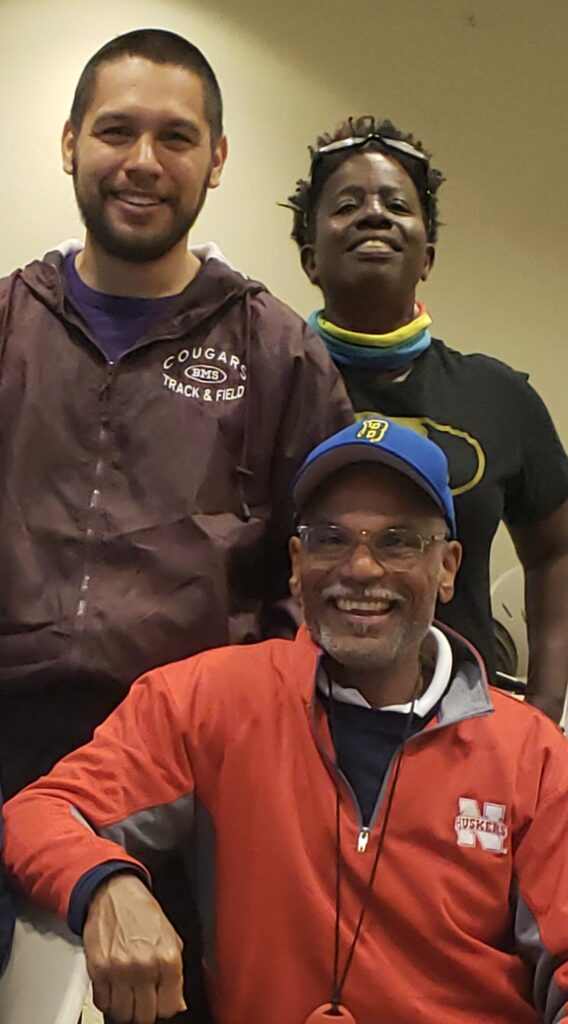DISCOVER YOUR LOCAL BICYCLING COMMUNITY
Find local advocacy groups, bike shops, instructors, clubs, classes and more!
Centering Equity And Public Health Through Bike Education
Today the League will be closed in observance of Indigenous People’s Day. The following article, written by Elaine Mariolle for the League’s Fall 2020 magazine, highlights the impact of bike education on community health and how these BIPOC bike educators are using their League Cycling Instructor certification to uplift their communities. Enjoy!
In Pima County, Arizona, we know getting more people on bikes can help us reach our community-wide health and wellbeing goals. To reach more people in our community, we put equity, diversity and capacity building at the heart of our bike education efforts. Thanks to a Racial and Ethnic Approaches to Community Health (REACH) grant provided by the CDC, the Pima County Health Department has sponsored three LCI seminars over the past 18 months, training 29 people as bike educators. Those certified include health educators, middle and high school teachers, community advocates, and staff from the Pascua Yaqui Tribe, Tohono O’odham Nation, and PCHD.
LCI status empowers community members to teach bike safety curriculum with more confidence and with a greater sense of equity and diversity. Here are their stories, in their own words:

Iris Coronado and Victoria Cupis ~ Co-founders of Indigenous Road Warriors (IRW)
Iris is a member of the Pascua Yaqui Tribe and Victoria is a Tohono O’odham tribal member. IRW holds year-round Tuesday evening Rez Rides at the Pascua Yaqui Pueblo. They also organize periodic weekend rides on The Loop (132-mile multi-use path in Tucson). The rides attract 16 – 20 riders of all ages and abilities with a dedicated core group of young riders. Training the next generation of well-prepared riders and community leaders is a priority for IRW.
“We use our LCI training for cycling in traffic with our youth riders. The good thing about teaching them these skills is that when we see them cycling in the community, they are clearly using the proper signals, helmets, and communication on their own,” said Iris Coronado.
“Iris and I have cycled for several years on our own,” said Cupis. “LCI training has given me an appreciation for safe cycling, and especially, an awareness of my surroundings in traffic. I also learned how to prep for long distance and group cycling rides.”

Lucy LiBosha ~ Advocate and Sugar Hill BIWoC Ciclistas Co-founder
“Becoming an LCI has changed my life. Although I rode as a child, I started serious cycling about five years ago. As a high school teacher, I worked with fellow teachers and students as we trained for and rode the El Tour de Tucson 40-mile event. With a newfound love of the open road, I now commute to work 40% – 60% weekly. I became a board member for BICAS (Bicycle Inter-Community Art and Salvage, a nonprofit bike repair/salvage collective), a Complete Streets Coordinating Council member, and I am collaborating with Pima County Health Department and other organizations, to create a bike program for women and girls of color called Sugar Hill BIWoC Ciclistas. I’ve taught three Traffic Skills 101 classes, and assisted with several bike clinics. LCI training makes me a stronger and more versatile ride leader and advocate.”

Ernesto Somoza ~ Pueblo High School (PHS) Road Warriors
Building on the after-school El Tour de Tucson bike club, Somoza started a Fundamentals of Cycling class this Fall, during school, which filled fast. LCI certification was essential in receiving approval for the class.
“I teach Fundamentals of Cycling at Pueblo High School in Tucson, Arizona. Being LCI certified has given me the confidence to lead my students on bike rides during school and in our after-school program. I have taken the curriculum and techniques I learned from the LCI training and have implemented those skills into making my students confident and competitive riders in Tucson’s annual El Tour de Tucson. Students have shared that they feel much safer on the roads after running through the LCI curriculum and exercises. Before being LCI certified I was prepared to ride, but being LCI certified gave me the assurance that I was ready and capable of riding safely with large groups of riders.”

Joseph Mease and Thomas Cupis ~ Baboquivari Middle/High School Bike Program
The Baboquivari MS/HS, located near Sells, AZ in the Tohono O’odham Nation, was awarded an Outride grant and they are receiving 31 bikes and helmets. Mease, a PE/Health teacher and a Tohono O’odham community member, will lead the middle school instruction.
“Our middle school program will run eight-weeks, three days per week during PE and health classes,” said Mease. “This opportunity will have a positive impact on our students in many ways, such as reducing their risks of cardiovascular diseases, obesity, and diabetes. We will accomplish this goal by promoting and teaching safe cycling, proper equipment use, cycling laws, bike maintenance and much more.
“Our MS/HS programs will benefit our students more than ever during this coronavirus lockdown as more students are showing signs and symptoms of depression and mental illnesses. I want to see our students exercising and riding a bike each day to strengthen their self-esteem and their emotional, social, and cognitive well-being.”
Thomas Cupis, Baboquivari HS astronomy and physics teacher, avid cyclist, LCI and member of the Pascua Yaqui Tribe, will lead an after-school program for high school students. Cupis has stated, “LCI training has provided me the additional skills and confidence to advocate for healthy living though cycling for the Pascua Yaqui and Tohono O’odham communities.”
Elaine Mariolle is program coordinator for Bicycle and Pedestrian Safety in the Pima County Health Department. She is an active LCI and has served as an assistant coach for five LCI seminars. During the pandemic, all groups are following CDC guidelines and jurisdictional directives regarding congregation, group size, and face covering.